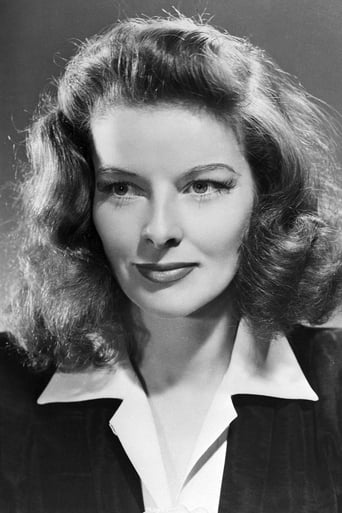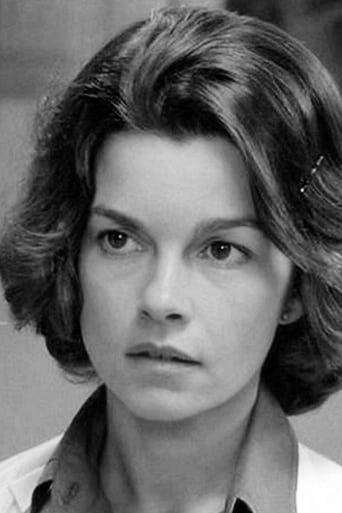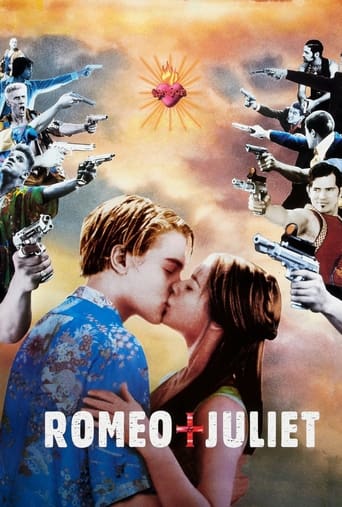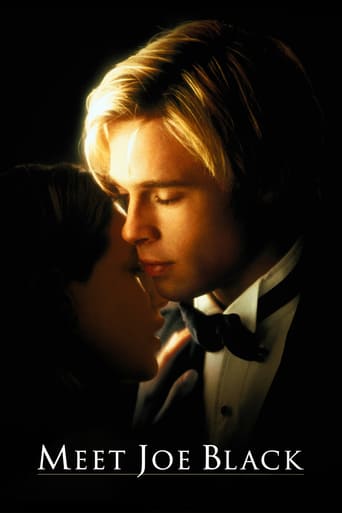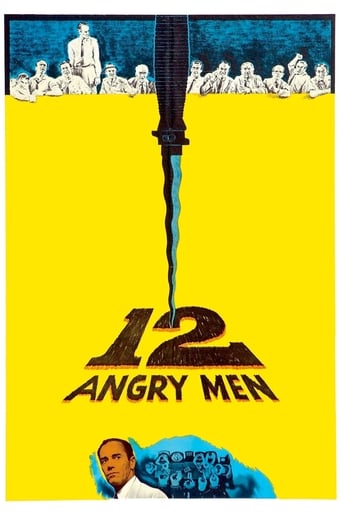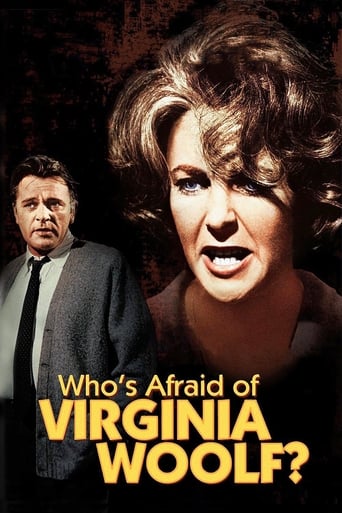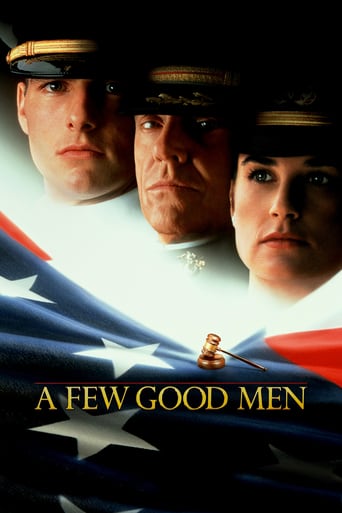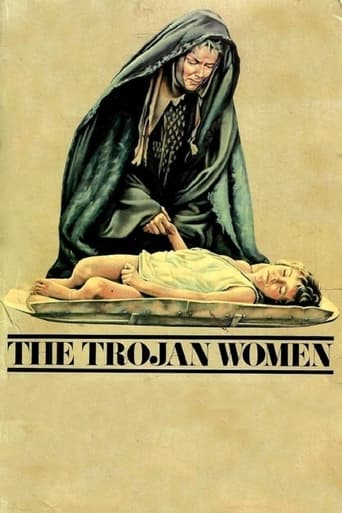
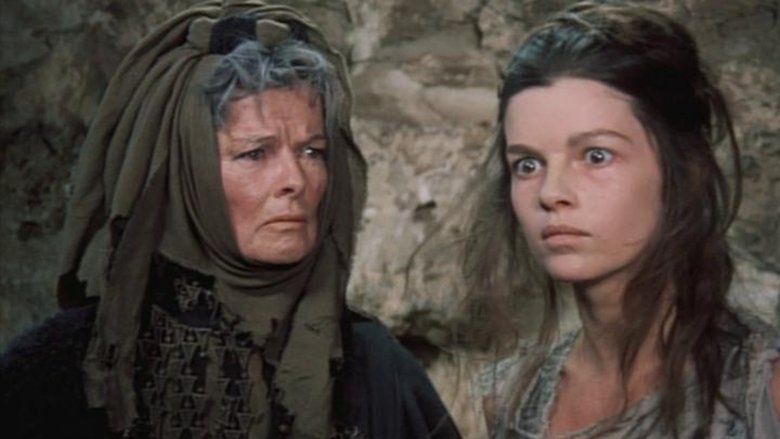
The Trojan Women (1971)
In the aftermath of the Trojan Wars, Queen Hecuba takes stock of the defeated kingdom. Her son has been killed, and his widow, Andromache, is left to raise their son, Astyanax, alone. Hecuba's daughter, Cassandra, fears being enslaved by her Greek masters, while Helen of Troy risks being executed. Astyanax also becomes the focus of the Greeks' attention as the last male heir of the Trojan royal family.
Watch Trailer
Cast


Similar titles
Reviews
Playwright Euripides' barrier-crossing sympathy for women on the losing side of the mythic Trojan war could have been written over two millennia later as a sword-and-sandal allegory of some contemporary conflict. The enduring relevance was not lost on adapter/producer/director/editor/composer Michael Cacoyannis, who dedicates the movie to those who would resist oppression. Yet this dedication misses the point, because Euripides' script begins after the time for resistance has come and gone and all is truly lost. All that is left is to discover how insidious and inescapable total defeat is. Try as they might to deny the end of their culture, to assign blame, to comfort themselves through religion, to remember that they were once great, to find some small triumph in the ability to stand upright, the Trojan women may not retain even a shred of their past dignity. It is not that the Greeks gloat: the Greek soldier who speaks the most is apologetic and respectful in response to powerful speeches delivered by women of such presence as Katharine Hepburn, Vanessa Redgrave, and Irene Papas, but in the end he is the victor and with that comes the obligation, distasteful though he may find it, to play the part. The part of the conquered is nevertheless the more distasteful, and the more ineluctable.
This film was shown at my art school in the early 90s to accompany reading the Greek play for class. It is beautifully produced -- the location and the lighting is exquisite, and makes the characters achingly beautiful in the midst of the tattered, gritty, treacherous war being waged around them. This film appears to be timeless...the cinematography is perfect; it does not appear to be an "old" or 'historical' film, and this luminescent quality helps younger viewers focus on the story (rather than struggle with history or epic readings or overlooking outdated film techniques). In fact, the movie is so well made, and the women appear so fresh and real, that as a college student I had no idea this movie was made in the early 70s, until I read a screen bio of Redgrave and was shocked that the movie is several decades "old." The viewer is pulled into the landscape by the profoundly beautiful Mediterranean surroundings, the intense acting, and raw emotionality the actors portray. This production successfully creates the ancient Greek ideal of tragedy, where the viewer experiences some personal transformation along with the characters. Quite memorable, even 15 years after seeing it -- and worth the time investment for a longer film.
I enjoyed the two other films I have seen from this director, "Zorba the Greek" and his best foreign film nom. "Ipthgina". My complaint with those and with this is that they are too long. The play this is based on may be lacking in quailty to the others. Either way I would not recommend it.3/10
A greek tragedy is very hard to be made into a movie. In my opinion it is really almost impossible as there are often long monologues that can't be cut or improved in any way. Nevertheless Michael Cacoyannis tried, and succeded in filming the best anti-war work ever written. The film is a bit stagy but that is how it should be. Being the editor of his film too, he manages to create a unique atmosphere that in the beginning seems a bit akward but as the plot develops you understand that it is the ideal. The scenery is excellent. We see only the total destruction of the city and that's all we need to see as the narrations must "draw" the total picture of the inner part of the city in our minds. All the performances are first-rate. Katharine Hepburn is heart-breaking as Hecuba. She cries for her lost sons, husband and city. She loves the city and hates the Greeks who give her, the queen of Troy, as slave.G.Bujold is also excellent as Cassandra. She seems crazy, but she is fully aware of the fate. She delivers a balanced performance avoiding exagerations. Irene Pappas is stunning. Looking more beautiful than ever, she manages to stand opposite Katharine Hepburn's Hecuba and deliver an excellent and utterly convincing performance. But the great performance of the picture is surely Vanessa Redgrave's. Her Adromache seems strange at the beginning but when her character is fully developed, you understand the genius of her performance. This picture is a must-see not only for the excellent performances delivered but four of the greatest actresses of their generation but also for the importance of Euripides play.


